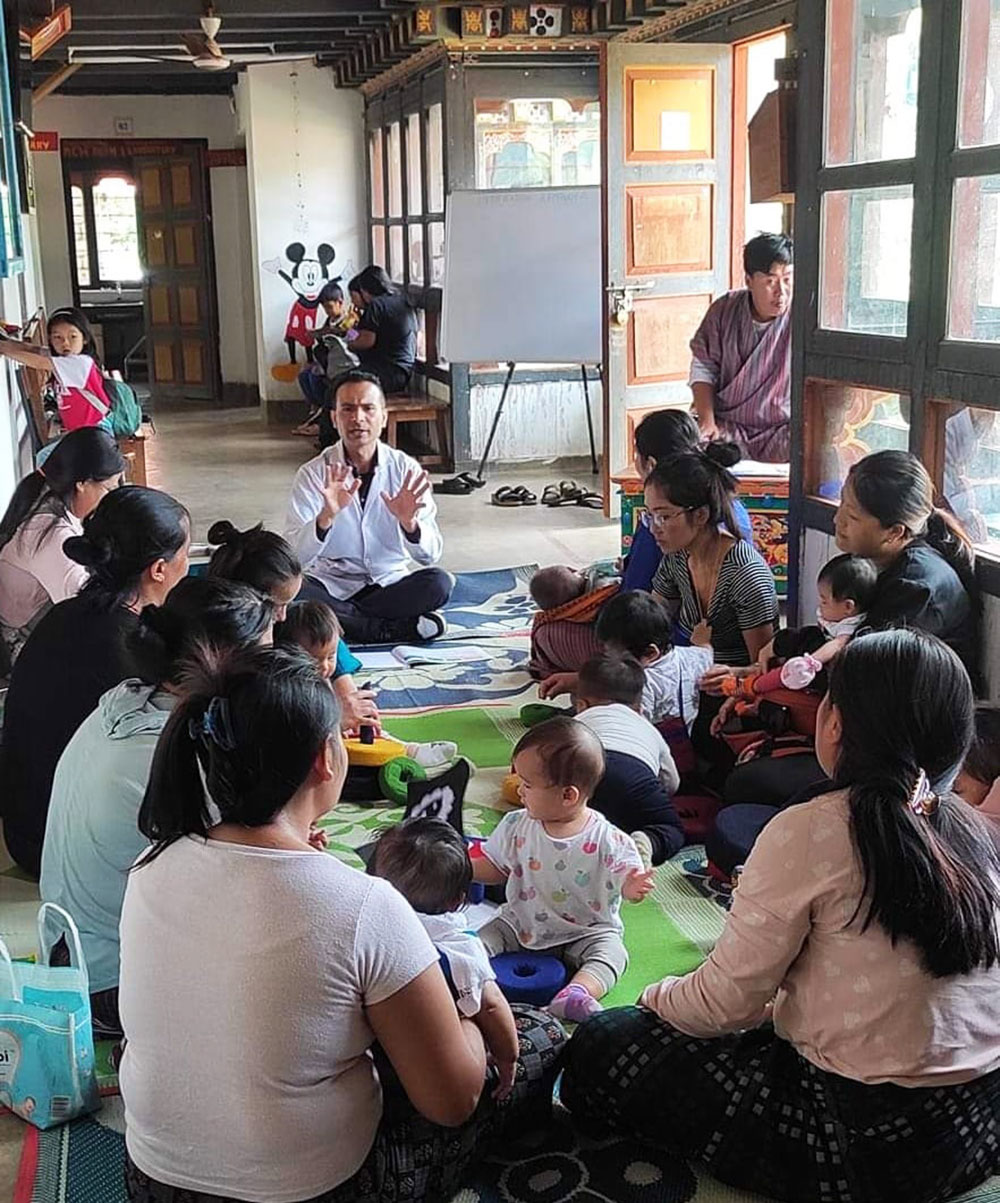Yangyel Lhaden
A programme ‘Scaling Up of Playful Parenting in Bhutan’ (SCPPB) highlights the significant impact of playful parenting on children’s emotional, social, and cognitive development.
The research, conducted from 2020 to 2024, by FHI 360 on the programme reveals that playful parenting approach enhances the emotional, social, and cognitive development of children, while strengthening the bond between parents and their children.
Playful parenting encourages caregivers to engage in both structured and unstructured play with their children, fostering a deeper connection and enhancing communication.
This approach is built on the premise that play is a crucial tool for children’s development, not just a fun activity. It helps children develop essential life skills, laying the groundwork for a successful and well-rounded future.
These findings of the project’s 2020–2024 research study were presented at an evidence exchange event yesterday.
Key stakeholders including officials from the Ministry of Health (MoH), representatives from Early Childhood Care and Development centres, and donor agencies attended the event.
The event provided a platform for stakeholders to reflect on the evidence supporting scalable, quality, evidence-based programmes for caregivers.
The SCPPB programme, launched in September 2019, is a collaboration between Save the Children Bhutan and the MoH, with funding from the LEGO Foundation. Bhutan is one of five countries selected to implement this initiative, alongside Serbia, Rwanda, Zambia, and Guatemala.
The health secretary, Pemba Wangchuk, said that the science behind playful parenting and neuroscience was compelling and the critical role that play serves in the development of young children, particularly from birth to age three. “Play is not just for fun; it is fundamental.”
He said that playful parenting was essential, as the programme reaches even the remotest villages through health clinics, with health professionals now better trained and parents learning to make toys from readily available materials at home. “Playful parenting has been integrated with regular health services for children, recognising its importance.”
While playful parenting has proven to be a successful initiative, the study proposes strategies for further improvement, such as ensuring both female and male caregivers are informed about group sessions and understand their significance, as sessions were primarily attended by female caregivers.
The study found that monitoring session attendance was important, as male caregivers preferred shorter sessions, with most attending fewer than four or five sessions.
In response, the MoH and Save the Children have shortened the sessions and the study suggested ongoing monitoring and review of emerging evidence to better understand the impact on parents who may not complete all nine sessions, making adjustments as needed.
The study also recommended continued investment in health assistants, who play a critical role in delivering the programme, through incentives, and training and supportive supervision, including refresher sessions, observation, and coaching.
The study also states that recognising the performance of health assistants is crucial to maintaining the programme’s success and ensuring long-term sustainability.


